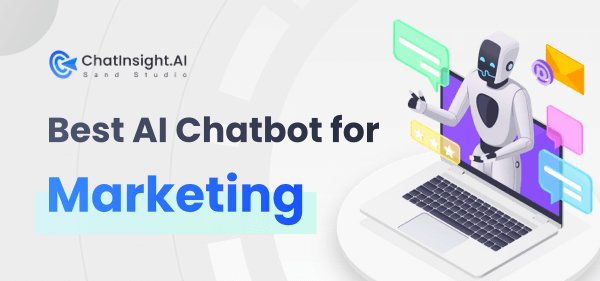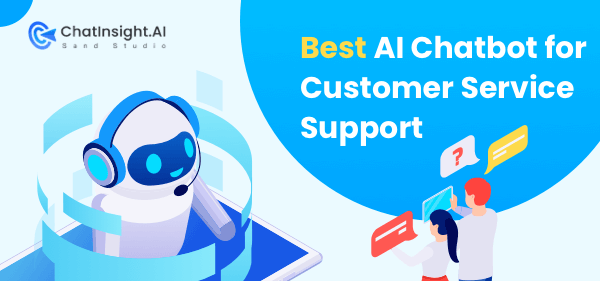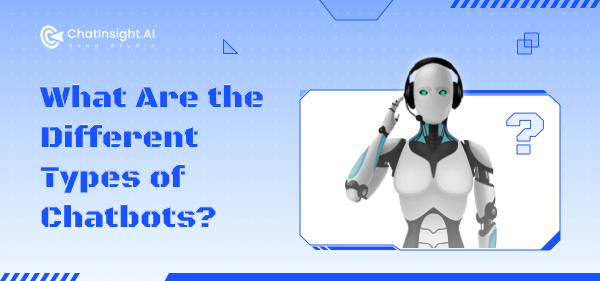Conversational AI in Insurance Industry
Were you recently trapped in a conversational look with an insurance agent? Were you unable to convey the queries successfully? For many clients, thinking of waiting in long lines or waiting on the phones for hours to be bounced between departments is very off-putting. What if there was a better way to handle the situation without losing clients?
The answer is AI—which automates repetitive questions and promotes information to enhance the user experience. Conversational AI is becoming the foundation of tangible and impactful insurance products. Continue reading to discover the influence of conversational AI on insurance.
1The Evolution of AI in Insurance
Insurance firms held a very close bond with the agents. They expected undivided attention from them when the clients were stirring troubles. The companies expected the agents to be in touch at all times. On the other hand, the agents would travel door to door, selling policies and retaining clients.
Fast forward to the future, insurance has become a data-driven industry. It uses vase collection of customer data to decide its next move. The industry has moved on from one-on-one conversations to establishing call centers that sell policies. The introduction of chatbots has made operations more efficient. The customers appreciate feeling more than a client number to the firms.
Automation has done wonders. However, the insurance industry uses AI to foretell, improve, and enrich its conversations with clients in a more personalized manner. Here are a few examples of how forms of insurance are benefitting from chatbots
Health insurance
- Chatbots make it easier to process claims and offer instant updates as well.
- The health plans are customized according to the user, such as age, budget, and insurance provider.
- The chatbot offers clear details related to insurance coverage
Life Insurance
- Chatbots guide clients in choosing the best life policy based on their needs.
- Chatbots remind the client about payment and premium payments
- They address repetitive, common queries related to beneficiaries, insurance terms, and payment cycles.
Travel Insurance
- The chatbot offers policies based on holiday length, destinations, and family members
- Claims related to refunds and cancellations are immediately answered.
- The chatbots offer real-time support during travel emergencies
2How is Conversational AI Transforming Insurance Services
Conversational AI is transforming insurance services in several ways:
Enhanced Customer service and support
24/7 availability and real-time responses
Conversational AI-based chatbots use Natural Language Processing to offer real-time assistance. The algorithm is useful for the human agents and the customers. NLP quickly responds to customers’ questions in live chat, which is an AI-based chatbot. It reduces the customer call duration. Furthermore, the customer retention rate also increases.
A chatbot is active day and night and can handle calls when a human agent is not available. The chatbot becomes a virtual agent to keep the client occupied with relevant prompts. The chatbot will redirect the page to the policy or service page after studying the conversation. It improves the overall experience. The clients feel extremely valued.
Personalized customer interactions
AI in the insurance industry answers crucial questions and repetitive FAQs related to products and policies. Responding to the same questions again and again can be very hectic. The tasks are dull for live agents. Therefore, chatbots take the lead to do their job while the agents focus on complex matters.
Timely answers to the FAQs impressed the clients. It attracts them to purchase the insurance products. With a dynamic back and forth between the chatbot and the client, initial queries are put to rest almost immediately. The human staff can focus on the real problems and tasks that require immediate attention.
Efficient claims processing and management
Streamlining claims registration
Conversational AI in insurance is excellent for claim settlement. The technology will automate all claim processes which makes it faster. The insurance pipeline is more efficient as well. The firm can quickly access the client’s data from the firm’s hub as well.
Chatbots guide the clients through the processes of filing. Furthermore, it navigates different claiming procedures so everything goes smoothly. The clients do not need a service representative to come and assist them. As a result, the customer experience is enhanced. At the same time, it reduces the time for each process. The customers are pleased with the automation, which leads to referrals and brand generation in the market.
Automated updates and follow-ups
While promoting policies, the chatbots embedded on the website will offer updates throughout the purchase journey. In the first stage, a chatbot will suggest customized insurance prospects to the client. It will also ask follow-up questions if the recommendation was helpful or not. At the same time, the chatbot will upsell and cross-sell policies to relevant users.
Updates regarding prices related to different products and premiums are also conveyed. It is up to the client to pick the best option according to their profile. AI chatbots will guide the users with document submission and policy retrieval as well. The updates ensure the paper is not outdated and the client is aware of the most recent policy changes.
Fraud detection and risk assessment
Advanced analytics for risk evaluation
AI evaluates risks by analyzing the data. Its algorithm is able to process huge volumes of internal data. It will analyze future project performances. Chatbots will detect where the resources were allocated and wasted. Thirdly, the algorithm will also highlight if the budget was under or over-utilized. After studying the data, AI will establish a pattern and correlate different parameters to highlight risks.
Conversational AI for insurance will reduce threats by studying behavioral patterns. It will warn the clients before the accidents occur. You can also ask for predictive circumstances where the chatbots will suggest safety measures and counter-procedures to ensure client safety.
AI-driven fraud detection mechanisms
Conversational AI in insurance offers an efficient and extensive approach to detecting fraud in payments. Chatbots use different machine learning techniques and AI models to study data. It is important here to mention that rule-based chatbots can perform the action. The AI-based fraud-detecting systems continuously adapt and improve to stay ahead of malicious individuals.
Machine learning algorithms will instantly recognize anomalies. They will highlight unusual patterns in the transactions, flagging inconsistencies in real-time. The AI algorithm can differentiate between real and fraudulent data with excellent accuracy. It reduces the probability of false positives to add integrity to the data.
3Conversational AI Use Cases in Insurance Industries
Conversational AI, leveraging advanced natural language processing and machine learning technologies, can significantly enhance various aspects of the insurance industry. Its use cases span customer service, claims processing, underwriting, sales, and more. Here are several key applications:
1. Customer Service and Support
Conversational AI can be employed through chatbots and virtual assistants to provide 24/7 customer service, answering common inquiries, policy details, payment queries, and more. This improves customer experience by reducing wait times and offering immediate responses.
2. Claims Processing and Management
AI-driven chatbots can streamline the claims process by guiding customers through the claims submission process, collecting necessary information, and even assessing and approving straightforward claims automatically. This can significantly reduce processing time and costs, while also increasing customer satisfaction.
3. Policy Underwriting and Risk Assessment
Conversational AI can assist in gathering relevant information from potential policyholders during the application process. It can ask pertinent questions, analyze responses, and help in the initial stages of risk assessment, making the underwriting process more efficient and accurate.
4. Sales and Marketing
By interacting with potential customers, conversational AI can identify customer needs, recommend suitable insurance products, and even initiate the onboarding process. This personalized interaction can enhance customer engagement and increase conversion rates.
5. Fraud Detection and Prevention
Advanced AI systems can be trained to identify patterns and anomalies in claims data that may indicate fraudulent activity. By analyzing conversations and claims submissions, AI can alert human investigators to potential fraud, thereby helping to mitigate losses.
6. Customer Retention and Personalization
Through continuous interaction, conversational AI can gather insights into customer preferences and behavior, enabling insurers to offer personalized services and product recommendations. This can improve customer loyalty and retention by making customers feel valued and understood.
7. Training and Support for Insurance Agents
Conversational AI can also serve as a tool for training new agents by providing them with instant access to information, policy details, compliance guidelines, and more. It can also assist experienced agents by quickly retrieving specific information, thus enhancing their efficiency and effectiveness.
8. Operational Efficiency
By automating routine inquiries and tasks, conversational AI frees up human employees to focus on more complex and value-added activities. This not only reduces operational costs but also improves employee satisfaction by enabling them to engage in more meaningful work.
4Benefits of Conversational AI for Insurers and Customers
Conversational AI is transforming the industry by providing a range of benefits for insurance firms, providers, and customers alike. The following are some of the key advantages of using conversational AI:
Cost reduction in customer service
Conversational AI in insurance is cost-effective for the provider. The costs related to hiring, training, and shortlisted expenses are significantly reduced when AI chatbots are introduced. Chatbots are available round the clock, unlike the human staff that works in shifts. As a result, the inquiries are handled day and night.
The insurance provider does not need to hire in multiple shifts. A 24/7 active chatbot means that the provider will respond to queries without hiring additional members. Chatbots will learn and improve throughout their use. It further reduces the need for support and staff training. Insurers only need to pay for the installation of the chatbots and their license fees.
Improved operational efficiency
Conversational AI in insurance automates mundane tasks and repetitive customer interactions. It lets the customers expand the customer support operations because fewer costs are involved. Furthermore, automation speeds up operations and offers efficient results. It increases productivity within the firm. Chatbots can handle a huge range of customer queries, from basic to moderate to claims.
The queries are primarily related to claim processing, refund, or quote estimation. Conversational AI is helpful in reducing the wait time for customers so they are heard immediately. It enhances customer satisfaction because the clients feel heard. If a query is too complex for the chatbots, it is sent to the relevant insurance agent with sufficient knowledge to aid the client.
Enhanced data collection and analysis
Conversational AI for insurance also includes data collection. The chatbots will collect relevant information from the customers. Elements include insurance policies, premiums, insurance length, email address, phone number, and client names. The information is processed to gain valuable insights which is applied to the insurance products and services.
Chatbots can analyze and keep a close eye on customer behavior. The technology studies customer preferences as well as feedback. The analysis provides insight into what the customers are expecting from the insurance provider. It allows the company to decide how to interact with the clients. Chatbots lead to excellent marketing strategies, better product recommendations, and improved customer satisfaction.
Improved accessibility and convenience
Chatbots have diverse features that make them accessible to a wide range of clients. The insurance chatbots can speak and chat in pop-up windows. Furthermore, the clients can also click on images to read them in detail. If the client is visually impaired or suffers from low vision, the chatbots offer screen readers who speak aloud the information.
Chatbots are also incredibly convenient because they are available each time you visit the website. They understand the client’s queries based on previous interactions. Furthermore, the chatbots also use first-person pronouns and the client’s name to build familiarity. AI has eliminated the need to wait endless for human support. Chatbots do not sleep, eat, or need rest.
Faster resolution of inquiries and claims
AI chatbots in insurance lead to easy processing and settling of claims as the clients do not need to wait for policyholders constantly. They do need to follow around insurance agents and the support staff with the hope that their request will move forward. Chatbots remove bias and unnecessary bureaucratic interventions that complicate matters.
The clients and book meetings with the agents through the website chatbot as well. The chatbot will share which time the agent is available. If the matter is serious, the chatbot will connect the client to the agent immediately. The customers and the agent enjoy quick communication and collaboration to resolve challenges.
Personalized insurance offering
Insurance providers use conversational AI to contact customers directly. They embed virtual assistants on their websites or applications so the customer can inquire about insurance offers. It is a very effective product placement where the features are easier to comprehend. Furthermore, the user does not need technical knowledge to operate the AI-based chatbots.
The client can inquire about travel insurance, motor insurance, and funds. They can also inquire about the products and policyholders for information. Chatbots allow clients to compare prices and premiums so they can pick the best according to their profile. It removes a complicated relationship between the agents and the insurance brokers.
5The Future of Conversational AI in Insurance
The upcoming years involving the role of conversational AI embedded in the insurance industry are brighter than ever. It will record conversations and analyze the interactions to pick up trends. As a result, the customer support team has an easier time communicating with the clients. The customer experience has improved significantly. Here is what the future holds
Searching voice conversations
Future chatbots in the insurance industry can record and transcribe calls with clients. It will make it a lot easier for the insurance firms to search and read conversations before setting the next meeting. The feature will ensure that important information can be accessed with a few clicks. It increases transparency with every customer. Furthermore, the policyholders are also pleased with the progress.
Analyzing calls and generating leads with keywords
Future chatbots will recognize industry-related keywords and phrases. The AI algorithm will track the keywords throughout the transcript created in the step before. The data is then analyzed to:
- Carry out an insurance sale
- Increase boost customer satisfaction scores for better engagement
- Make decisions related to the clients
- Create a loyal and healthy relationship with the clients.
Highlight KPIs to improve customer relationship
The chatbots in the insurance industry will recognize trends and keep them on track. Furthermore, they will also predict results based on the data. Future chatbots will expand their upselling and cross-selling opportunities. Lastly, they will also ensure staff compliance related to scripts to boost revenue.
Final Words:
The use of chatbots, virtual assistants, and different forms of AI allows providers to customize services to their clients while experiencing reduced expenses. The technology streamlines their processes with high levels of efficiency. It leads to better services and top-quality products. In short, conversational AI’s role in insurance will expand. New advancements are expected to benefit the clients and the insurance companies.







Leave a Reply.